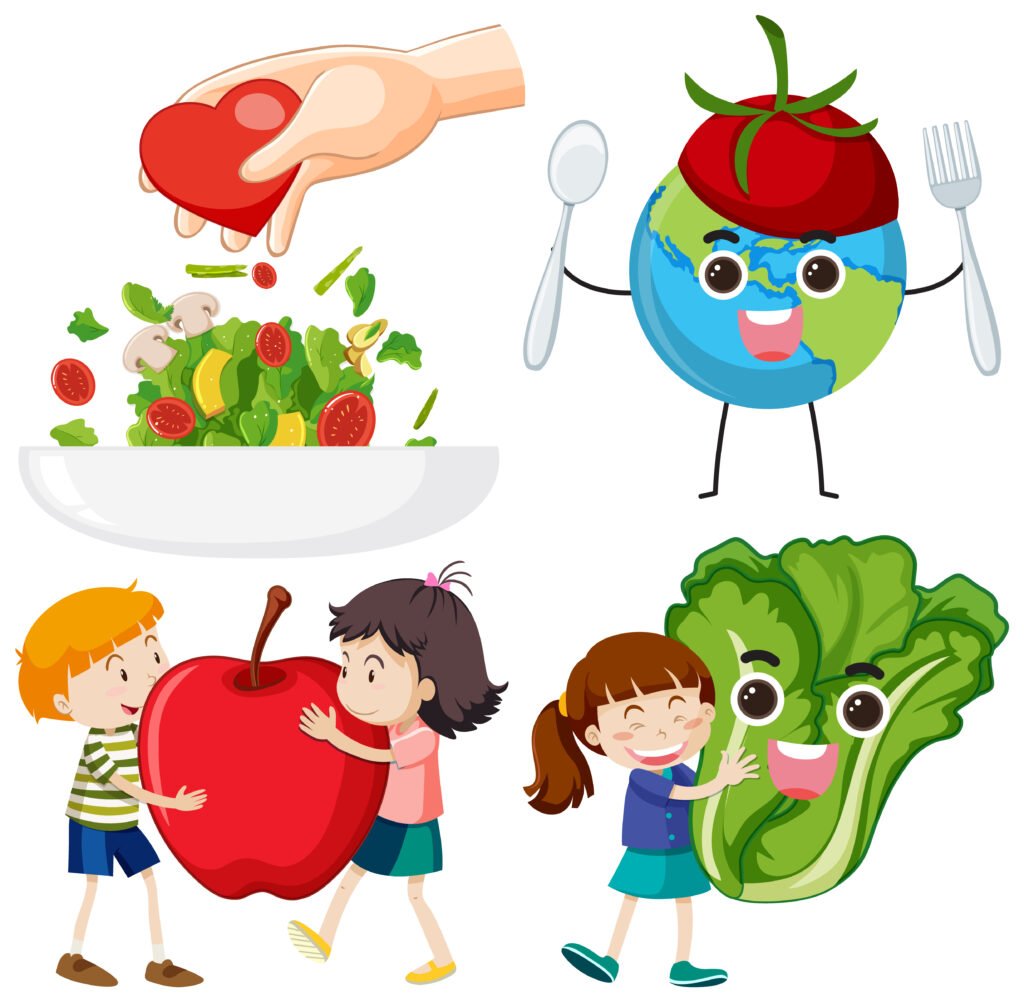
Healthy Eating for Kids
A healthy diet is like fuel for a powerful engine. For children, it’s even more important. Healthy foods provide them with the energy, nutrients and vitamins they need for growth, development and a strong immune system. In this essay, we explore the importance of healthy eating for children and how it affects their current and future well-being. First and foremost, a balanced diet supports proper growth. Children are like young saplings who want to reach for the sky. To achieve this, they need various nutrients such as proteins, carbohydrates, vitamins and minerals — these nutrients help with bone development, muscle growth and cognitive function. Calcium, for example, found in dairy products, contributes to the strength of bones and teeth. A deficiency of these essential nutrients can lead to stunted growth and developmental delays.
In addition, a healthy diet is critical for cognitive development. The brain is the command centre of a child’s body, and it requires a steady supply of nutrients to function optimally. Omega-3 fatty acids, found in fish, for example, play a crucial role in brain health. They enhance memory, concentration and the ability to solve problems. A diet rich in fruits and vegetables provides antioxidants that protect brain cells from damage. So, a well-nourished brain paves the way for better learning and academic performance.
Moreover, healthy eating habits established in childhood lay the foundation for lifelong health. They shape children’s food preferences and make them more likely to choose nutritious options as they grow older. Conversely, a diet high in processed foods and sugary snacks can lead to long-term health problems such as obesity, diabetes and heart disease. When children are educated about the benefits of a healthy diet, they can make informed choices and lead healthier, more fulfilling lives. In addition, a balanced diet supports a robust immune system. A well-nourished body is better able to fight off disease and infection. Vitamin-rich foods, such as the vitamin C found in citrus fruits, strengthen the immune system. This means fewer sick days and more time to learn, play and explore the world around them.
Importance of healthy eating

Healthy eating promotes positive social interactions. Sharing meals with family and friends promotes cohesion and creates a sense of belonging. It provides an opportunity to teach children the importance of a balanced diet and good eating habits. Cooking together can be a fun and educational experience that teaches children valuable life skills. However, it is important to strike a balance. Occasional treats and sweets can be part of a healthy approach to food. It is about moderation and teaching children to enjoy these pleasures without overindulging.
Conclusion
In summary, healthy eating for children is not just about filling their bellies but also about nurturing their bodies, minds and futures. A balanced diet supports growth, cognitive development and a strong immune system. It lays the foundation for a lifetime of good health and positive social interactions. By teaching children healthy eating habits from an early age, we empower them to make choices that will benefit them throughout their lives. Remember that feeding our children today is an investment in a better and healthier future for us all.
For more educational content that nurtures curiosity and learning, I encourage you to visit Chrysalis High.
FAQ
Why is healthy eating important for kids?
Healthy eating is vital for kids because it supports their growth, development, and cognitive function, helping them thrive.
How can I encourage my child to eat more fruits and vegetables?
To encourage healthy eating, involve kids in meal prep, make fruits and veggies fun, and be a positive role model by eating them yourself.
Are there any creative snack ideas for kids that are both healthy and appealing?
Yes, you can create nutritious and tasty snacks like yoghurt parfaits, veggie sticks with hummus, or homemade fruit popsicles.
What are some common pitfalls to avoid when trying to establish healthy eating habits for children?
Avoid using food as a reward or punishment, limit sugary and processed foods, and ensure a balanced diet to avoid nutritional gaps.


